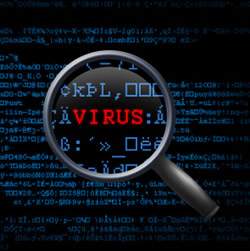Hackers go wherever the people go. That’s part of how they trick Internet users into downloading malicious software. As online video games continue to grow in popularity, hackers have made more viruses focused on players. Knowing more about these viruses could help you identify them and keep them off your computer.
Yontoo Comes in Many Packages
Image via Flickr by BEST FEELER
Yontoo is a fairly new adware virus that infects computers by masquerading as a media player, download accelerator, or other supposedly useful piece of software. Once you’ve downloaded it, though, it displays ads on your computer. The virus also gathers information about your online activities.
Deleting the Yontoo virus is simple once you recognize the problem. If you don’t know where those ads are coming from, though, you don’t even know where to start cleaning up your computer.
Email-Worm.Win32.Lewor.a: The First of Many
Email-Worm.Win32.Lewor.a doesn’t have a name that you can easily pronounce, but it had a huge effect on the way that cybercriminals attacked their targets. Email-Worm.Win32.Lewor.a was the first worm virus to steal online game passwords.
Over time, programmers learned how to defeat Email-Worm.Win32.Lewor.a. It’s not even a problem today. But it started something that still plagues gamers.
Hala.a: A Recent Development
Hala.a is basically an evolved version of the first password-stealing worm. When it infects a computer, it connects to a remote server to receive instructions.
What’s interesting about Hala.a (and another version called Alman.a) is that it contains malicious and safe files. This helps the malware hide from antivirus programs. It’s like wearing a disguise when you enter enemy territory. If no one recognizes you, then they don’t react.
Sality Destroys Files and Antivirus Protection
Sality, a virus designed to attack Microsoft operating systems, potentially poses a problem for anyone using a PC. The last thing that a gamer wants is to find out that Sality has deleted files from his computer. That could affect game play while damaging security software.
The real problem is that Sality tries to dismantle antivirus software. Once it makes a home on your computer, it creates a path that helps other viruses invade. Within a matter of hours, your computer could slow to a lurch.
Rootkit.Sirefef.Gen Attacks From the Inside
Rootkit.Sirefef.Gen is another virus that steals information, eats away at your bandwidth, and displays ads on your computer. That makes it a triple threat and an annoyance. Unfortunately, it’s difficult for most people to spot. It’s even difficult for most antivirus programs to detect.
Rootkit.Sirefef.Gen heads straight for the operating system to disguise itself as a legitimate application. This makes it easier for the virus to do its job without revealing itself. Unfortunately, Rootkit.Sirefef.Gen knows how to check computers to see if they’re 32-bit or 64-bit systems. This lets it change its objective to match each computer’s vulnerabilities.
How have viruses hijacked your gaming experience? What actions have you taken to protect yourself from more viruses?











